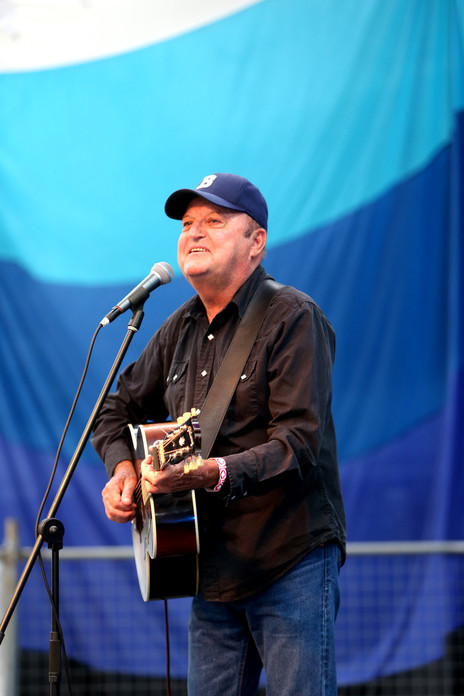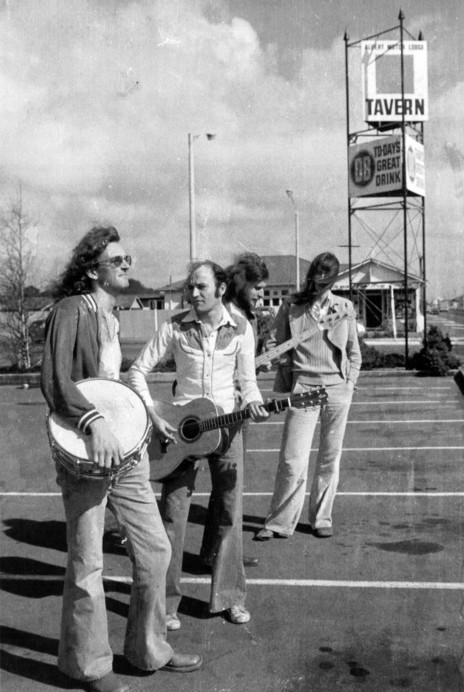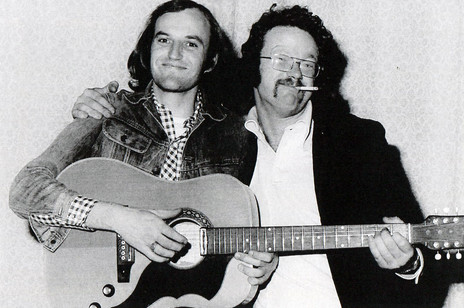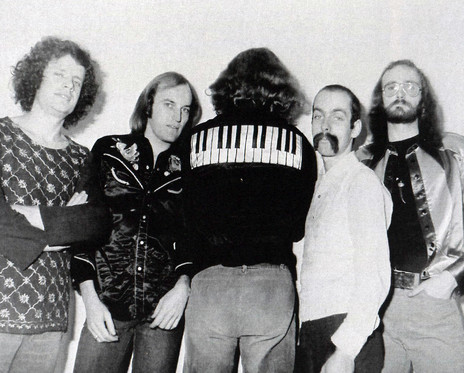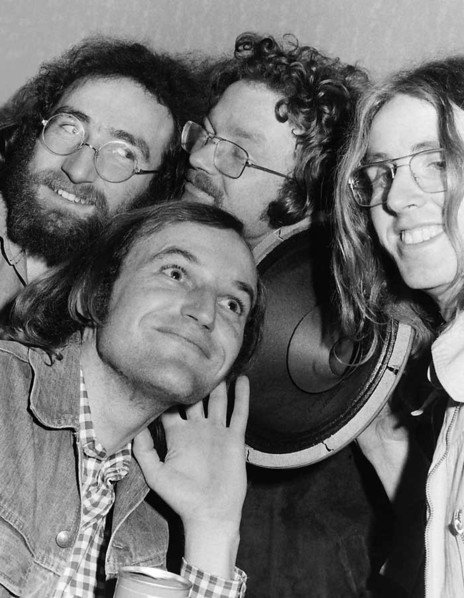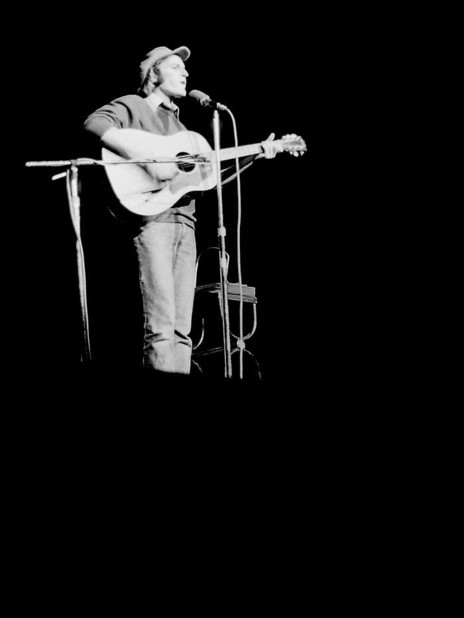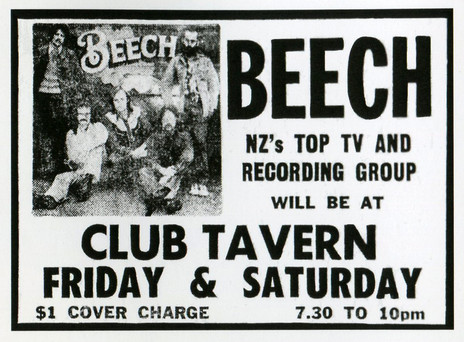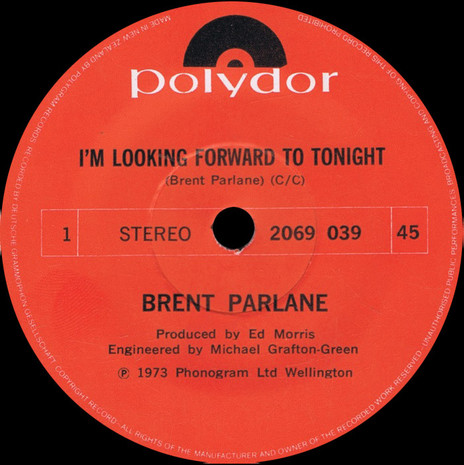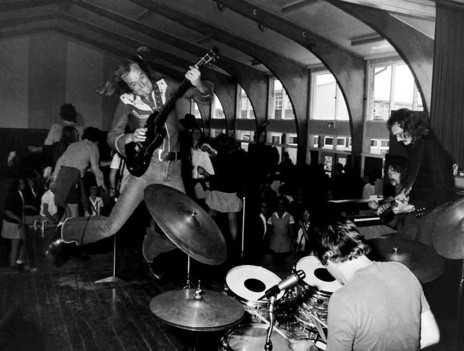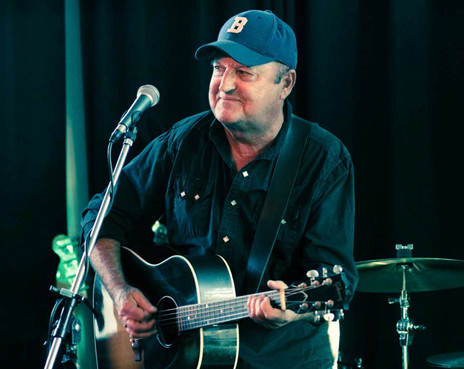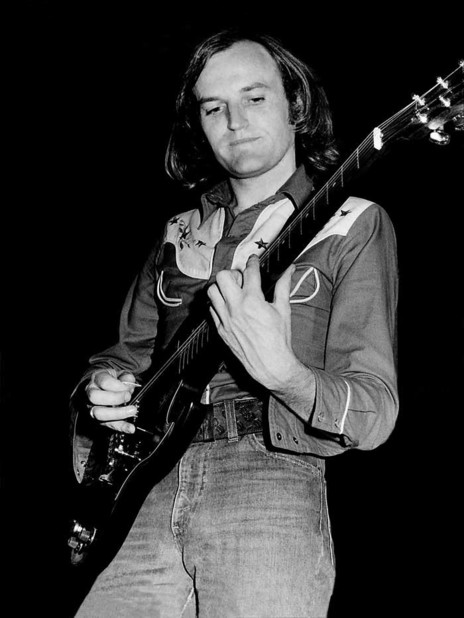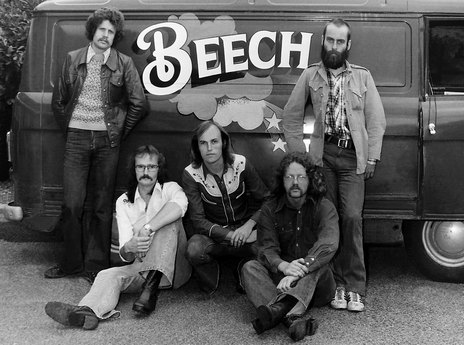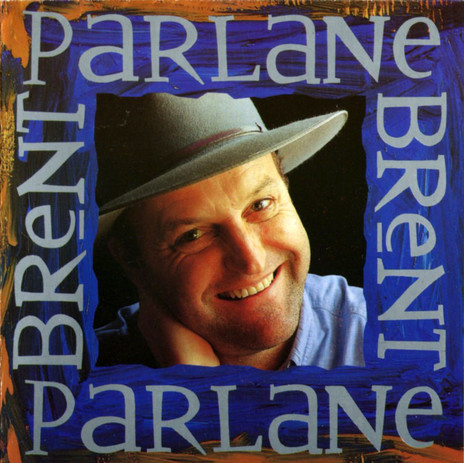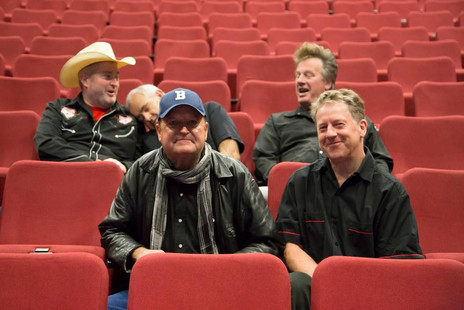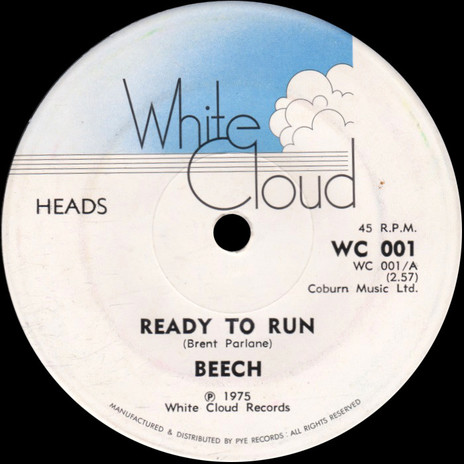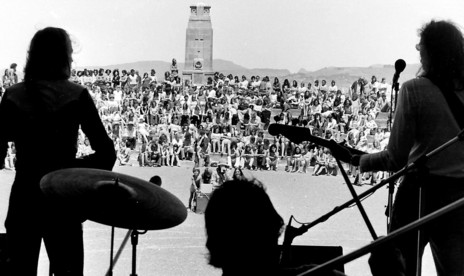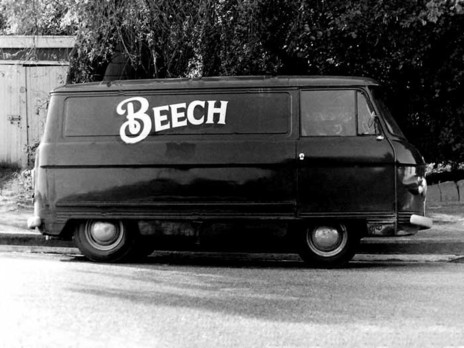Twenty years after Ngāruawāhia, with his major label debut album under his belt, Parlane received the new talent of the year award at the Golden Guitar Awards in Tamworth. He had crossed the Tasman in 1976 after several years as lead singer in Beech, and has gone on to be described as an Australian national treasure.
He opened in Australia for Randy Newman, Jesse Winchester and Guy Clark, played in London, Chicago, San Francisco, New York and Los Angeles before his first trip to Tamworth, and later toured with The Amazing Rhythm Aces and former Byrd Chris Hillman and Herb Pedersen.
The son of a Royal New Zealand Air Force pilot and then commanding officer, Brent Parlane was born in Tauranga in 1952. His early years were spent at his father’s air force postings around New Zealand, in London and Bangkok.
At the age of six, Parlane made his stage debut singing Sheb Wooley’s novelty hit ‘The Purple People Eater’ at a school Christmas concert. By the time he was 12, The Beatles, Bob Dylan, The Seekers and Peter, Paul and Mary had replaced The Shadows as his musical heroes.
“Suddenly everyone had to get a guitar because The Beatles were millionaires and they had those girls running after them,” Parlane laughed. “Yeah, let’s try that! But it didn’t take long before the folk scare came along after that and it was easier to play some of those songs than the rock and roll or The Beatles stuff.”
Just as his ears were opening up to these new sounds and he was teaching himself how to play the songs on guitar, Parlane’s mother died of renal failure. With his father posted overseas, Parlane became a boarder at the boys-only Nelson College.
Long hours were spent playing guitars and harmonising in a storeroom full of boarders’ suitcases and cleaning products. Parlane and his classmates had to wait until the older boys in the school band finished practising first. One of those older boys, Lindsay Field, went on to star in the original Australian production of Hair before becoming John Farnham’s long-time backing vocalist.
Leaving school, Parlane moved to Auckland where his father had returned. He took to writing his own songs and playing in coffee shops and folk clubs and confessed to his father that he wanted to pursue music. He was taken aback when his father replied, “If you do it properly I don’t mind, if that’s what you choose to do.”
It was all the encouragement Parlane needed. He set up a meeting with young gun promoters Barry Coburn and Robert Raymond who were impressed enough to finance a single, ‘I Am A Stranger’ b/w ‘Running Down’. The session was produced by Coburn and appeared on the promoters’ Down Under Records through Polydor.
They introduced Parlane to Lindsay Marks, another singer-songwriter in their stable who had just reached the 1972 final of Studio One New Faces. The promoters sent Parlane and Marks out as opening acts for The New Seekers’ New Zealand tour.
Parlane took the NGĀRUAWĀHIA stage at short notice, as Black Sabbath didn’t want to follow Fairport Convention
Both were given slots at Coburn and Raymond’s next venture, the Great Ngāruawāhia Music Festival in January 1973. Parlane was due to appear on Sunday morning but received a tap on his shoulder midway through Fairport Convention’s set on Saturday night.
“I’d had a big joint and I was watching Fairport Convention,” Parlane remembered. “They just were one of the best bands I’d ever seen. Not really my kind of music but they were just so good and the crowd was rocking and everything was going fantastic.
“Then there’s this tap on the shoulder and Barry [Coburn] says, ‘Hey, come with me. Black Sabbath are worried. They don’t want to go straight on after Fairport Convention. We wanna stick you on for half an hour.’” Parlane diligently strapped on his acoustic guitar and afforded Ozzy and co an easier entry to their first New Zealand appearance.
Later in the year, Parlane entered Studio One New Faces with his song ‘I’m Looking Forward To Tonight’. But on the evening his appearance went to air, transmission faltered and the nation’s sole channel cut to the test pattern. When transmission resumed, Parlane’s song had ended.
A week later, the NZBC made a special apology before the next episode of Studio One and played ‘I’m Looking Forward To Tonight’ in full. “So I got one-and-a-half shots at it,” Parlane laughed. “And then the guy in the milk bar next day recognised me and I thought, ‘Well, there we go, I’m on my way.’” Produced by Edd Morris, the song was released on Polydor.
Parlane was invited to join Beech as lead singer, which led to a couple of years of touring all over New Zealand performing their own songs and the covers of the day. The line-up of Parlane (vocals/guitar), Andrew Forrer (bass guitar), Andrew Kay (keyboards), Phil Jones (guitar/vocals) and Ron Mahony (drums) released a Parlane-penned single on Barry Coburn’s White Cloud label.
Hot Licks music reviewer J M Cummings judged the 45 alongside that of their White Cloud labelmates Split Enz in April 1975: “Beech’s ‘Ready To Run’ wins out over ‘No Bother To Me’ by Split Enz as an excellent, straight-ahead rocker at present picking up airplay. ‘No Bother To Me’ won’t be a hit but if Genesis can have a hit single then surely Split Enz can.”
Despite splitting with Robert Raymond in the aftermath of the Great Ngāruawāhia Music Festival, Coburn continued bringing big overseas concerts to the country and almost always gave Beech the opening slot, supporting the likes of Muddy Waters, Roxy Music, The Sweet, and Eric Clapton.
By 1976, Beech had folded. Parlane released ‘That's The Way It Goes’ b/w ‘So Many Times’ on White Cloud and opened for the Eagles at Carlaw Park before deciding to travel to London. He made it as far as Sydney.
“I came here with just a guitar and a suitcase and moved in with some friends,” Parlane recalled in 2020. “And the gigs were just there, everywhere; lying around on the ground, you know. Three hours a night in a wine bar or a little pub, singing whatever people wanted to hear. You could earn money. It was great.”
In Melbourne he formed the band The Tourists, partly because Hawaiian shirts were cheap.
Finding the same thing in Melbourne, he moved there. His former Beech bandmates Andrew Forrer and Andrew Kay were also there and they formed the band The Tourists, partly because Hawaiian shirts were cheap. When the Annie Lennox-Dave Stewart pre-Eurythmics Tourists had an Australian Top 10 hit with ‘I Only Want To Be With You’ in 1979, Parlane’s Tourists changed their name to 33 South.
Barry Coburn was by now in Australia and had convinced Channel Nine in Melbourne to let him manage their disused recording studio. One of his first actions was to get 33 South in to record. A self-titled LP came out in 1980 and two singles; all produced by Fairport Convention guitarist Trevor Lucas, but 33 South didn’t survive long after their release.
Parlane returned to solo work in Melbourne and Sydney, recording four DIY cassette albums along the way. “You know, singing my own songs, recording them cheaply and manufacturing the cassettes to sell at the gigs,” he said. He would perform his songs at the bars; people would buy a cassette and return the following week requesting other songs from the tape.
At the behest of songwriter and sometime duo partner Greg Champion, Brent Parlane ventured to the Tamworth Country Music Festival for the first time in 1992. Initially apprehensive, he was knocked out by the generosity and calibre of other singer-songwriters there. “Because all you see in the media of Tamworth is the cartoon stuff, you know what I mean? But it was fantastic. They welcomed me with open arms.”
There was a feeling he was attracting the right kind of attention when Australian country heavyweight songwriters John Williamson, Graeme Connors, Eric Bogle and Colin Buchanan and a gaggle of ABC Music execs were checking out his performance at the Longyard.
Parlane gave his cassettes to the record label and later in the year asked if they would be interested in financing an album. ABC Country leapt at the chance. Produced by Trevor Reading, Brent Parlane and its first single ‘Save A Little Love’ brought Parlane a Golden Guitar for New Talent of the Year at the age of 40!
His ABC Country follow-up Tex Loves Daisy, again produced by Reading, followed in 1994. In the Sydney Morning Herald of 2 April 1995, Susan Jarvis reported: “Fans of Parlane will remember that the previous album focused on family life and on the simple pleasures of home and everyday love. [Tex Loves Daisy] seems to go further beneath the surface to explore the undercurrents of uncertainty and inner conflict that affect everyone to some extent.”
The title track harked back to a day at the beach in December 1980 when Parlane was informed John Lennon had been murdered. He melded the memory together with a piece of graffiti he had spied around the same time. ‘Not That Kind Of Girl’ was about date rape – not your standard country music fodder. The album closer ‘Sam Hunt’ was a tribute to the New Zealand poet Parlane had seen in Auckland and later worked with in Melbourne.
However, major label clout didn’t equate to major sales. “When I won the Golden Guitar, [promoter] Rob Potts booked me in every festival known to mankind for the next year. What I realised was they want the guy who won the Golden Guitar, they didn’t actually want me or my songs.”
To make it harder on himself, Parlane opted to play at the festivals solo rather than use an unrehearsed pick-up band like many of the other artists. “All the other people used the band,” he recalled. “How am I supposed to stand up in front of some guys, no matter how good they are, and play my songs when they don’t even know the songs?”
Parlane opted to play the country music festivals solo rather than use an unrehearsed pick-up band.
More satisfying was touring with Australian country music darlings The Dead Ringer Band: the Chambers family. Parlane struck up a friendship with Nash Chambers, who revealed his ambitions to be a producer. Chambers suggested he produce Parlane.
Parlane thought little of it until he heard the material Chambers was working on, including his sister Kasey’s breakthrough album The Captain. Utilising the cream of Australian country session players, Nash Chambers produced Parlane’s next two albums – The Closest in 1999 and Good Man Down in 2001.
Around 1995, the family history of kidney disease caught up with Parlane and he became ill. He was put on dialysis around 2000 and was forced to hang around Melbourne, performing rarely. He underwent a kidney transplant in 2006.
“As soon as I had the transplant, I was hopped up on drugs, so I made another album very quickly.” In the years following, Parlane returned to his pre-ABC blueprint of self-financing and releasing his own albums, adding sparse instrumentation when needed and calling in favours. Titles included Happy Note, Little Revolution and This Wonderful Parade, all featuring his former Beech alumni Andrew Forrer and Ron Mahony.
In 2016, Parlane and his long-time producer/guitarist Trevor Reading formed The Brent Parlane Band with drummer David Hicks, bass guitarist Rob Hornbuckle and guitarist Co Tipping (a member of Beech 40 years earlier) and released Brent Parlane Band.
